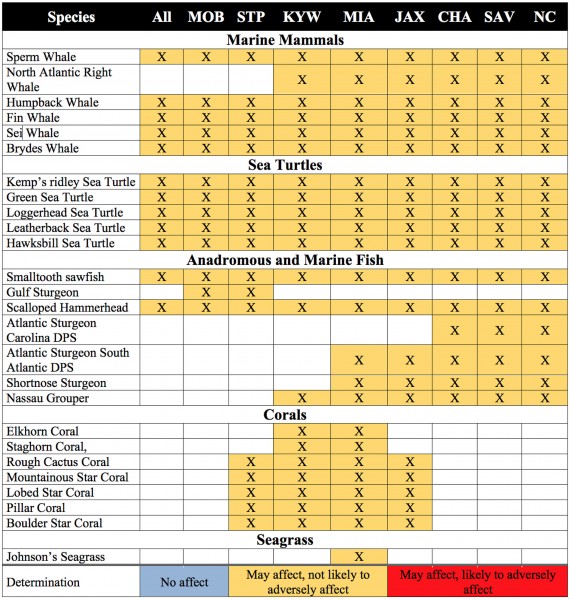RPI scientists have developed two Biological Assessments in support of the Regional Response Teams (RRT). RPI scientists in collaboration with SEA Consulting Group, provided technical support to the US Coast Guard (USCG) and US Environmental Protection Agency (USEPA) during the development of the Biological Assessment of Dispersant Preauthorization under Section I of the California Dispersant Plan for the Region for RRT9. This Biological Assessment evaluated the potential effects of the preauthorized use of dispersants during an oil spill response off the coast of California on federally listed species and designated critical habitats protected under the Endangered Species Act Endangered Species Act (ESA) (Section 7 of the Endangered Species Act, 16 U.S.C. § 1536).
RPI scientists also provided technical support to the USCG, the USEPA and other Federal agencies during the development of the Biological Assessment for the Preauthorized Use of Dispersant & In-Situ Burn Operations for the Region 4 Regional Response Team. This Biological Assessment evaluated the potential effects of the preauthorized use of chemical dispersants and in-situ burning during an oil spill response on listed species and critical habitats under the ESA, and essential fish habitat (Section 305(b) of the Magnuson-Stevens Fishery Conservation and Management Act (MSA), 16 U.S.C. §1855). RPI scientists played key roles in developing oil spill scenarios and model outputs on which to base assessments of potential effects. This information combined with a comprehensive synthesizes of best available science on the environmental impacts of dispersant and in-situ burning, were used to support effects assessments and determinations of the Federal actions. A copy of the final report can be found at: https://www.nrt.org/sites/52/files/RRT4_BiologicalAssessments_Dispersants&ISB.pdf.
Table 1. Example from the RRT4 Biological Assessment. Summary of final determination on the impacts of the Proposed Federal Action to species under the jurisdiction of NMFS.

